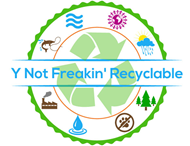From the University of Alaska, Brian Brettschneider reports on crazy record high temperatures up north, the choking smog, and the prospects of wildfires from the Boreal forest right up into the Tundra. How did cold Alaska become the hot smoky place? That was summer 2019 with record-shattering heat, a pocket of drought, and smoke that choked out Anchorage and Fairbanks. Is a new climate emerging in the far north?
Brian Brettschneider is a climatologist and researcher at the International Arctic Research Center, University of Alaska Fairbanks. You will find Brian’s quotes in Forbes or CNN. He just lived through all that wildfire smoke.
Podcast by Ashes Ashes, reposted under CC License. Browse episode resources & read full transcript at https://ashesashes.org/blog/episode-53-welfare-titans
Stop Fossil Fuels researches and disseminates effective strategies and tactics to halt fossil fuel combustion as fast as possible. Learn more at https://stopfossilfuels.org
SHOW NOTES
In two previous years, just south of Alaska, British Columbia declared a fire State of Emergency. Summer became a threatening season with an evacuation kit near the door. For a couple of weeks we couldn’t breath outside, and stayed in the house with windows shut in hot weather. This year all that and more came to Alaska. They got heat never seen before (ever) plus terrible smoke in the two main cities of Anchorage and Fairbanks.
From his Twitter account @Climatologist49, On September 2, 2019, Brian tweeted:
“Summer 2019 temperature departure from normal in Alaska (June-August). It is a near certainty that Alaska will finish with the 2nd warmest summer on record statewide (2004) and the warmest for about 1/2 of the state. ”
Here is another Tweet, from his feed that I am now following: “Looking at old climate forms for Anchorage, nothing appears to come close to the persistent smoke that has been present for the last several months in 2019. Although, back in June 1937, the city almost burned down….Today is day 25 (in the last 66 days) with smoke significantly reducing visibility in Anchorage .”
From the U.S. government web site we see this about how crazy it was in Alaska this summer:
“Alaska has just come to the end of a period of warmth that re-wrote the record books for multiple cities and communities across the state. And crazy enough, it was one of several jaw dropping climate events taking place across our largest state.”
At climate.gov Tom Di Liberto writes:
“Starting on the Fourth of July and lasting multiple days, temperatures across Alaska were 20 to 30 degrees above average in some locations. On July 4, all-time high temperature records were set in Kenai, Palmer, King Salmon, and Anchorage International Airport. The airport reached an astounding, for Alaska, 90°F, breaking the previous all-time record by 5°F! The average temperature in Anchorage during summer is normally in the mid-sixties. Anchorage, Talkeetna (which saw a July record daily high of 93°F), and King Salmon also observed their warmest week on record.
And the anomalous Arctic heat has not been short-lived. Through July 10, Juneau saw the high temperature reach at least 70°F for a record 17 consecutive days. In Anchorage, the highs have reached 80°F for a record six consecutive days, doubling the previous record. And three of those days broke or tied the previous all-time record! The average high temperature from June 27 through July 8 was nearly 81°F, 5.5°F higher than the previous 12-day record. There’s out of the ordinary, and then there is what has been happening in Alaska.”
THE ROLE OF CLIMATE CHANGE IN ALASKAN FIRES
In 2016 Brian Brettschneider co-authored a paper “An assessment of the role of anthropogenic climate change in the Alaska fire season of 2015″. That was right on target for what is happening now. We talk about what made the year 2015 a real turning point for the American Arctic.
Is it coincidence that Siberia experienced major wildfires in the same summer as Alaska? It sounds like science-fiction, but I wonder if we could see years where northern forests around the world burn—hemispheric fires in this age of global warming.
That paper by Brettschneider et al concludes “that climate change has increased the risk of a fire year as severe as 2015 by 34%-60%.”
This video was first published onSource link . We are just re-posting and re-sharing.
Y Not Freakin’ Recyclable Home
climate emergency
 Pollution Climate Change Holocene Deforestation Population Acidification Y Not Freakin' Recyclable
Pollution Climate Change Holocene Deforestation Population Acidification Y Not Freakin' Recyclable



